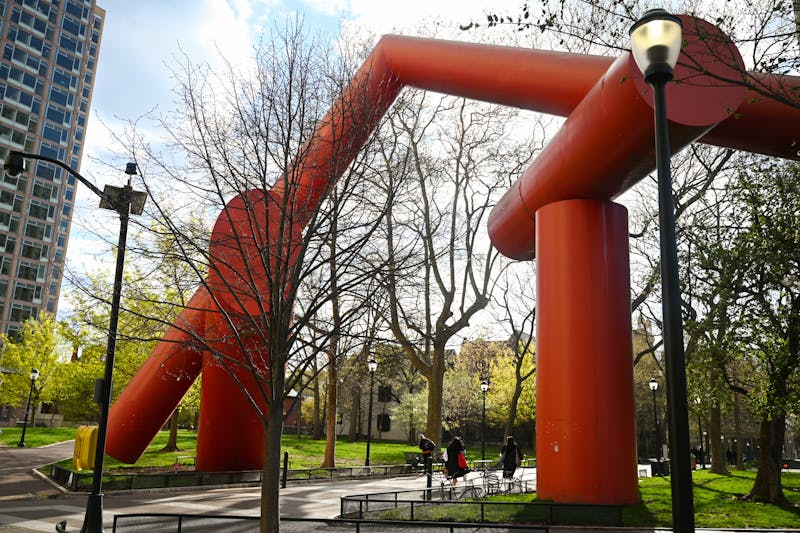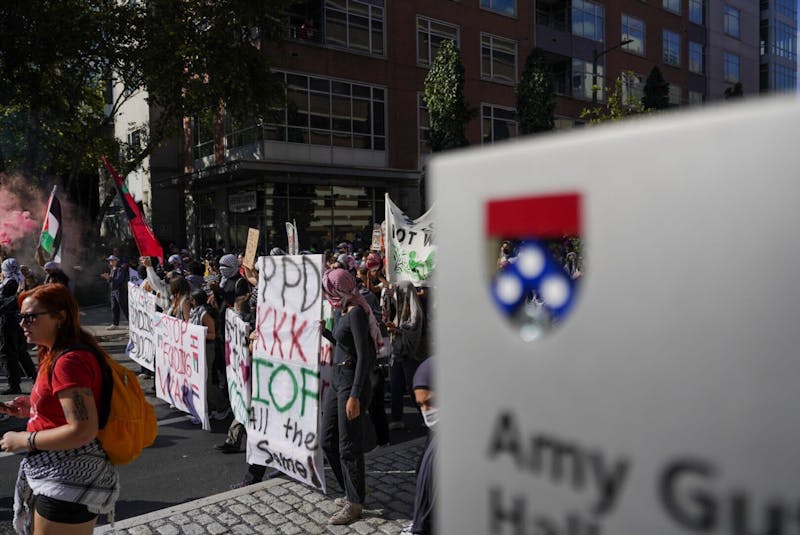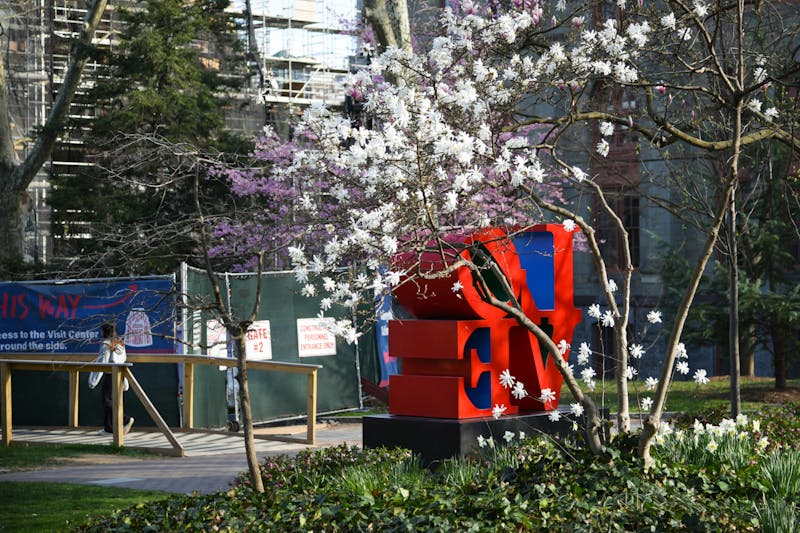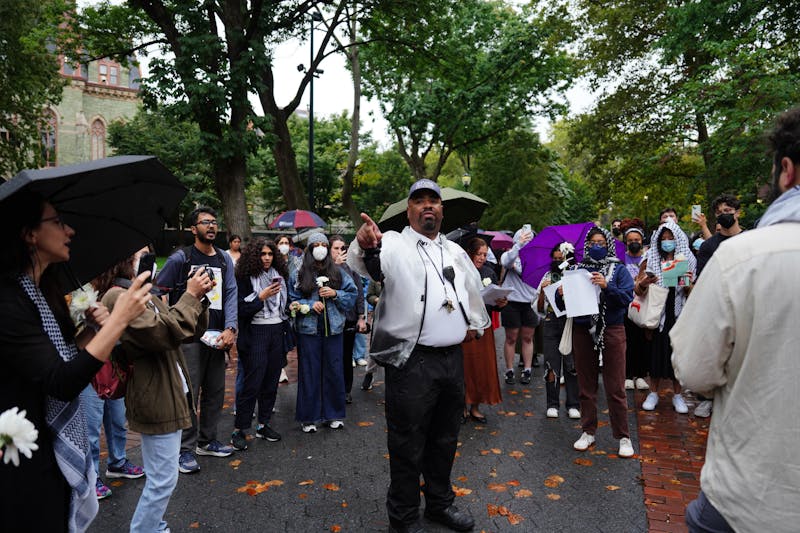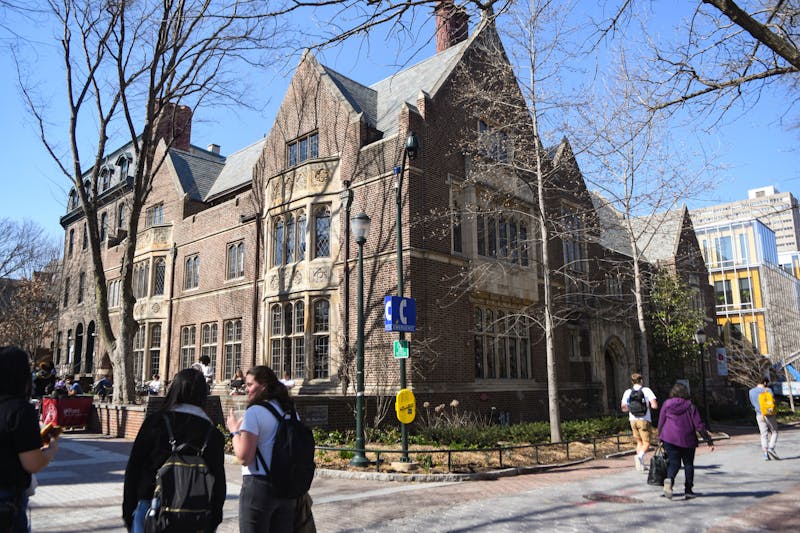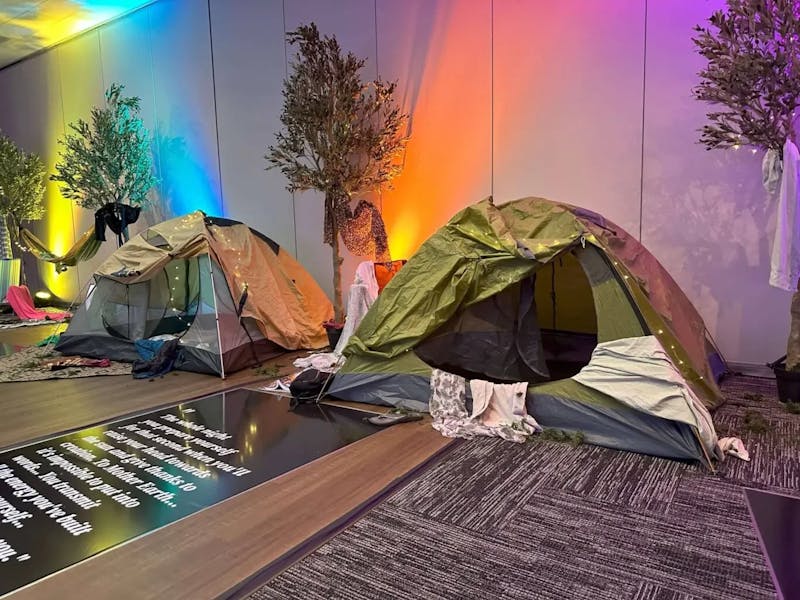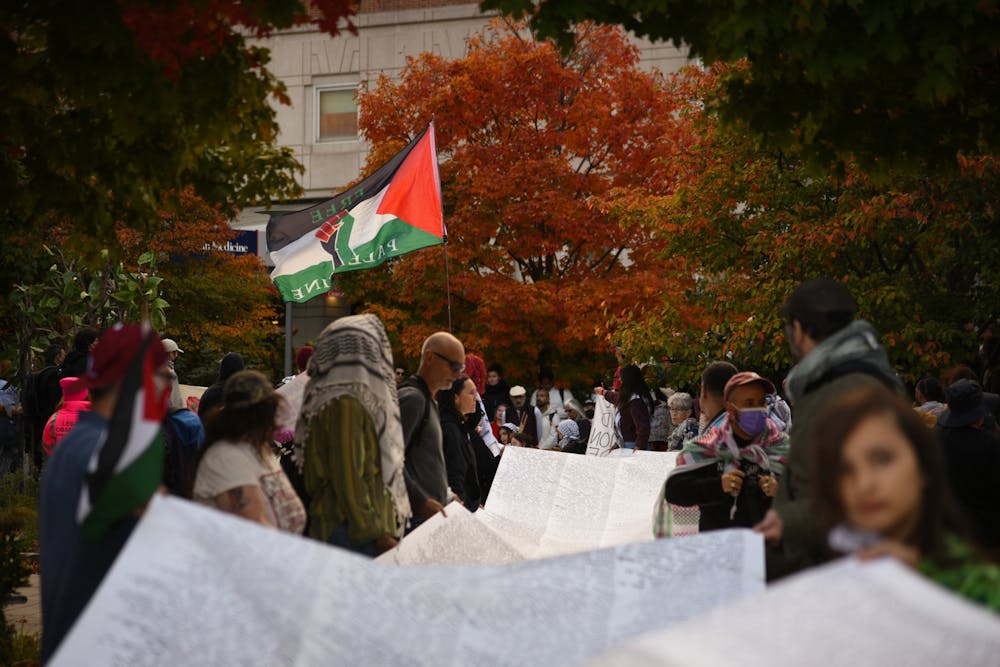
Attendees of the vigil display a banner of names of people who died in the Israel-Hamas war on Oct. 14.
Credit: Chenyao LiuPhiladelphia and Penn Police closed off Locust Walk from 34th to 36th streets — as well as several surrounding roads — in response to a vigil mourning the Palestinian, Lebanese, and Syrian lives lost in the ongoing Israel-Hamas war.
Penn Faculty for Justice in Palestine hosted the vigil in conjunction with Penn Students Against the Occupation of Palestine and Penn Jewish Voice for Peace, as well as eight organizations not affiliated with the University, including Natives in Philly and the Philly Palestine Coalition. The vigil, which was called “Indigenous Peoples Day Palestine Solidarity Vigil,” had over 250 participants who rallied for nearly two hours.
A University spokesperson did not respond to a request for comment on the vigil.
The vigil started at 3:30 p.m. and directly blocked traffic at the intersection of 34th and Walnut streets for about 10 minutes. It then moved in front of Fisher-Bennett Hall briefly while police redirected traffic. Police closed Walnut and Chestnut streets between 33rd and 34th streets to traffic, and the vigil then returned to the intersection for about 25 minutes. Speakers addressed the crowd, who chanted and took part in moments of silence.
One speaker at the vigil pointed to “survivance” — which they defined as “the insistence on native presence” — as an overarching theme of the vigil.
“Keep in mind that we are standing on Indigenous land that has been colonized and pillaged the same way Palestinian land is currently being colonized and pillaged,” the speaker said.
As participants arrived, organizers passed out cardboard key necklaces which listed the names of “depopulated villages in Palestine,” an organizer of the vigil who did not identify themselves by name told The Daily Pennsylvanian. In the first speech of the afternoon, the speaker encouraged the group to wear them “as a symbol of connection to the homeland and eventual return.”
Throughout the vigil, around 10 organizers held up olive branches. The first speaker said they serve as an homage to the olive branch’s “integral” role in Palestinian culture.
“Our farmers themselves have been fostering, keeping, and maintaining their olive trees for over 100 years, and in 1948, when European colonizers came to pillage their land, the way the European colonizers pillaged this land, they burned over 800,000 [olive] trees,” the speaker said.
At around 4:15 p.m., the vigil marched to the 200 block of South 34th Street, behind Fisher Fine Arts Library. A UPennAlert was sent out notifying the University community of the group’s movement, writing that traffic was “restricted in that block.”
The group again stood in the middle of the street as speakers addressed ecocide — the pollutant and landscape-altering effects of the ongoing conflict in Gaza — and read poetry.
One speaker also criticized Ghost Robotics, a company housed in Pennovation Works that develops and sells four-legged robots to be used for “data collection, intelligence, security, asset protection, and military-specific uses.” Protesters have been calling for the University to end its relationship with the company since last spring, alleging that it produces robotic dogs used by the Israeli military.
The speaker called on the University and Pennovation Works to cut their ties with and remove any “financial, logistical, [or] academic support” provided to Ghost Robotics, describing the company as “complicit in genocide.”
At 4:45 p.m., the participants moved to Edward W. Kane Park, which is located at the intersection of 34th and Spruce streets.
“We are standing between these institutions of humanitarian disaster, Penn Medicine and Penn Museum,” an organizer said. Upon the group’s arrival to the park, organizers unfurled a banner with the names of “7,000 martyrs from the 2014 massacre in Gaza,” according to an organizer.
A healthcare professional who did not identify themselves by name delivered the final speech of the afternoon, alleging that Israel has targeted medical buildings and personnel in Gaza.
“Hospitals are meant to be medically neutral, places for healing where no one is turned away. In Gaza, the targeting of hospitals, healthcare workers, and medical systems began as early as ten days after October 7th, 2023,” the speaker said.
The vigil finished with the reading of the names and ages of those deceased in the ongoing conflict.
“We stand here today, not only in mourning, but in defiance of the cruelty of those that wanted to erase them,” a speaker said.
The group disbanded at Edward W. Kane Park around 5:45 p.m.
The Daily Pennsylvanian is an independent, student-run newspaper. Please consider making a donation to support the coverage that shapes the University. Your generosity ensures a future of strong journalism at Penn.
Donate






